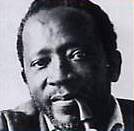(Above: France’s Women’s Basketball Team celebrates their Semi-Final win against Russia).
The same can also be true during the Olympic games, when athletes come to represent their home nations in a particularly powerful and tactile way. As a group, the athletes sent by a particular nation to the Olympics can provide a fascinating way of understanding a bit about that country. In preparation for our discussion during the first week of class, I’d like you to do a bit of research and learn about some of the athletes who represented parts of “Global France” during the Olympic games. In particular, I’d like you to look for athletes representing, France, Senegal, Cameroon, Algeria, and Haiti. Given the heavy U.S. tilt of the media coverage of the Olympics here, you may not have seen much of these athletes. (And for a nice rant about the failings of NBC’s much-maligned coverage of the Olympics, I highly recommend this Jay Smooth video at Duke Professor Mark Anthony Neal’s blog, New Black Man).
You may have seen some of these athletes, however. France has historic success in Women’s Basketball, winning a Silver Medal after losing to the U.S. in the final match. It’s Women’s Soccer team, meanwhile, came in fourth in the competition, beaten out by Canada in the final minutes of a riveting match. (Among the players on the French team is Louisa Necib, who I wrote a profile of last year). In Men’s Soccer (a competition in which neither the U.S. or France had qualified), the Senegalese team had a great and entertaining run. The Haitian-American athlete Samyr Laine (who was, a little annoyingly, most often described mainly as “Mark Zuckerberg’s former roommate from Harvard”), meanwhile, got into the final round of the triple-jump in Track and Field.
Of course there are also many other athletes who, whether they won medals or not, and whether they got onto our TV screens or not, arrived at the Olympics already having achieved a great deal, often against great odds, to be there.
I’d like each of you to come to section on Thursday, August 30th ready to talk about at least one athlete from one of these countries that you find particularly interesting. In preparation for our discussion, please provide the name of the athlete you are researching, along with a link to where you have found information about them and some reflections about what you find interesting about them, in the comments section below. Alternatively, you create a new post with details about the athlete. Please post your comment or post by 10 p.m. Wednesday evening so that we have time to read them before section on Thursday.
In this class we’ll be reading two books (my Soccer Empire and Fatou Diome’s novel) that deal with the relationship between immigration and sport, so I’d urge you in particular to see if you can identify athletes who have had experiences of migration in their own lives, of who come from families who have had experiences of migration.
Below are a few links to Wikipedia sites that provide rosters for athletes from these countries, which you can use as a starting point to identify some names and get some basic information. (For those of you in the English section, remember that on Wikipedia you can click on a tab on the left to get the version of the same page in a different language).
Here is a similar one on Cameroon, including the roster for their Women’s Soccer team. And here is one about Senegal, including the roster of their Men’s Soccer team.
Here is a similar one about Haiti, whose athletes included several Haitian-Americans.
And here is the Wikipedia page on Algerian athletes at the 2012 Olympics.


 Un motif intéressant que j’ai remarqué dans Le Ventre de l’Atlantique est le succès financier des gens qui ne sont pas bien intégrés dans leurs communautés. J’en parlerai en utilisant quelques exemples du livre.
Un motif intéressant que j’ai remarqué dans Le Ventre de l’Atlantique est le succès financier des gens qui ne sont pas bien intégrés dans leurs communautés. J’en parlerai en utilisant quelques exemples du livre.